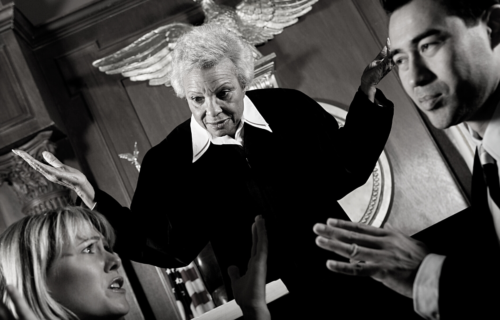
Divorce Attorney Relationships: Make It Work Without Losing Your Mind or Breaking the Bank
Your relationship with your divorce attorney is important. You don’t have to be BFF’s, but you should trust that they have your back and your best interests at heart. I’ve had a run of clients lately who’ve been really unhappy with their attorneys. It makes me wonder…is it the attorney’s fault? Have they hired a bad lawyer, are they no longer a fit, or has something else gone amiss in the relationship?
Why Divorce Attorney Relationships Get Strained
Sure there are a few bad eggs out there, but every attorney I know really tries to do the best they can for their clients. They have a heavy client load, are trying to keep your expenses down, and are also setting boundaries that allow them to have a personal life. It’s more often a combination of reasons that create that frustration including mismatched expectations, lack of understanding of the legal system, and failure to communicate clearly. Let’s explore some of the reasons I see divorce attorney relationships go off the rails and what you can do to prevent problems.
Expectations
During the initial consult and first meeting, you should be clear about the level of service you expect. Did you ask questions about availability, caseload, associate and paralegal involvement, and response times? Were you clear about wanting to approve correspondence or motions beforehand? Were you clear about your priorities? If you’re expecting to have your attorney’s personal cell number and concierge-level service, ask about that during your consultation. Or if you prefer a more hands-off, only touch base when you need me, keep my bill low kind of relationship, make that clear. Check out this post for some tips on how to hire the right divorce attorney.
The moment you begin to notice that your expectations aren’t being met, please ask for a meeting or send an email outlining your specific concerns. This is not an ultimatum or a demand, it is your opportunity to ask your attorney to partner with you to come up with solutions. If they’re the right fit for you, they will want to come up with mutually satisfying ways to address your concerns.
What’s Urgent and What Not
In the midst of all those divorce emotions, it can be hard to keep in mind that what feels big and urgent to you may not be deemed big and urgent to the court. If your spouse keeps dropping the kids off an hour late, that might be a pain in the ass to you, but the court isn’t going to deal with it. A judge isn’t going to open up the court on a Saturday to make an emergency ruling on soccer cleats. The same goes for not returning clothes, not reimbursing a $50 camp registration fee, sending a mean text, etc…
Talk with your attorney about what constitutes an emergency and create a strategy for dealing with those issues that won’t warrant emergency relief from the court. Have a plan for documenting these issues so they are presented in a format that is easily digestible and accessible for your attorney. You may not be able to get the court’s attention on each one, but having documentation of a pattern of behavior could serve your case well over time. Work with a divorce coach or a therapist to manage those big emotions and help you learn to respond rather than react. Divorce is a marathon, not a sprint, so find some support.
The Court’s Schedule
I cannot stress this enough. ASK your attorney what your court’s timeline is for getting things done- temporary orders hearing, restraining orders, a motion to compel, or a settlement conference. This is an important part of your strategy and decision-making. If it takes 60 days to get a temporary orders hearing, then there’s nothing your attorney can do until then if your spouse cuts off financial support. And remember, even if support is ordered at that hearing, it will take some time before it hits your bank account. If your spouse refuses to provide requested documents, you may need the court’s assistance, but again, it will take time to get on the calendar and get an order. Your attorney does not have the power to make the court move faster than it does. That’s not your lawyer’s fault.
If you are financially dependent, this is critical. Get a credit card, stash some cash, and make some sort of plan to have access to money in case this happens. The court system will be slow to get money into your hands and you will need to make due until then. Plan accordingly. Again, this is not your attorney’s fault. They do not have a magic wand.
Strategy
Why didn’t my attorney get a court date, make a proposal, file a motion, email opposing counsel, or do THE thing? Great question. Ask them. Make sure you understand the strategy behind why things are or aren’t being done in your case. There’s likely a good reason your attorney is doing what they’re doing – perhaps they simply haven’t explained it well to you. One reason could be your attorney wants to protect you from being seen as the high-conflict person. Remember that the court assumes you are both equally at fault for being unable to resolve your differences. Filing motion after motion to involve the court in smaller matters could cast you in an unfavorable light.
Believe it or not, delays can also work in your favor. If your spouse is not meeting deadlines, failing to provide financial data or discovery materials, not adhering to prior court orders, or sending harassing messages, that is painting a picture of their character and respect for the legal system. You keep doing the right thing and taking the high road. Trust me, judges do not appreciate parties or attorneys who show blatant disregard for the court system. Sometimes the slow pace of the legal process gives your spouse just enough time to show his or her ass.
Concise Communication
Please, please do not send your attorney 12-paragraph emails full of emotion and story. Help them help you by honing in on the specific legal questions or issues you need their assistance with. While your attorney is empathetic that your spouse cheated, doesn’t feed the kids vegetables, or is generally being a jerk, do you really want to pay them $400/hour to read about it over and over? In addition, when you embed a question in a long email it makes it more difficult for your divorce attorney to identify what you’re asking for. If you want good service, be concise, clear, and direct.
Here are a few tips for communicating effectively with your attorney:
- Keep good notes and files
- Use a Google Doc, Google Keep, or other easily accessible tools to jot down your questions and document answers from your attorney. Divorce brain makes it easy to forget things.
- Create a filing system to organize all your divorce documents so you can find what you need
- Be sure to put important dates on your calendar
- Use numbers or bullet points
- Make it easy for your attorney to review and respond to your email quickly (less cost and faster response time)
- Group related questions
- Make a “House” or “Parenting” heading and list all your questions related to that topic in that section
- Write a descriptive subject line
- Give your attorney a heads up – Request for Meeting, Status of Discovery Responses, Mediation Prep
- Make the ask – what do you need?
- Request a meeting to 1) bring me up to date on my case or 2) brainstorm solutions for a few things that are causing me concern
- Please send me a draft of the proposal to review before sending it to opposing counsel
- Where do we stand on the assignment of a GAL? Do we have a name or a start date yet?
Cost Analysis
Always ask yourself this question…is this worth $100? That’s 15 minutes of your divorce attorney’s time if their rate is $400/hour. Do you need to send that email RIGHT NOW or can you document your question and save it until your next meeting? Is this something my lawyer can take action on? Is this urgent? If you paid a $5,000 retainer and your attorney bills at $400/hour, you have only bought 12.5 hours of their time. They are billing you not just for time spent with you but for every minute they spend reading emails, talking to opposing counsel, drafting motions and proposals, etc… It will add up faster than you can imagine.
Consider every minute with your attorney carefully and review your bill regularly. Do you really need a one-hour in-person meeting or do you just have a couple of quick questions? Keep time with your attorney focused. Don’t be afraid to steer the conversation back to your case if they veer off to other topics. Speak up if they take another call or consult with a colleague during your time. Divorce shouldn’t bankrupt anyone.
The Shark Divorce Attorney
We’ve all heard people say they want a “shark” or “bulldog” lawyer. However, there’s a difference between someone who listens and then zealously advocates for you versus someone who just loves to litigate, file motions and rack up billable hours. Your attorney should listen to you, help you understand your options, explain why certain strategies make sense, and let you make decisions. If your attorney is condescending, won’t answer your questions, makes agreements on your behalf, takes action without your approval, or keeps you out of the loop, something is wrong. This is your divorce, not theirs. Check out this interview on The Divorce & Beyond Podcast with attorneys Susan Guthrie and Lauren Hunt on why a “shark” may not be the best choice and what to look for in a great attorney.
Final Thoughts on Your Divorce Attorney Relationship
You are in charge of managing your relationship with your attorney. And if you don’t do it well, not only will you be frustrated, but your legal bills could escalate quickly. Working with a certified, professional divorce coach from the start can help you clarify your expectations and goals so you can choose an attorney that’s a great fit. And they can assist you with making sure you are using your attorney’s services efficiently. Sound like something you could use help with? I’d love to do it with you! Let’s work together to make sure you and your divorce attorney have a great working relationship.
Wishing you strength and wisdom,




